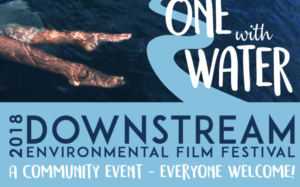Natalie Jacobson American Studies Comps on Food Waste and Food Insecurity
All posts by Alex Miller
Downstream Film Festival
Rice County Water Plans
One Watershed One Plan Process
In 2016 planning partners joined together to submit an application to the Board of Water and Soil Resources (BWSR) to develop One Watershed, One Plan (1W1P) for the Cannon River Watershed. The goal of 1W1P is to align local water planning on major watershed boundaries with state strategies towards prioritized, targeted and measureable implementation plans. In August 2016, BWSR selected the Cannon River as one of seven major watersheds across the state to receive a planning grant.http://www.dakotacountyswcd.org/1w1p.html
Environmental History in Northfield, MN Land conservation: Sibley Marsh, Lashbrook Park, and other spaces
While many people debate over its true meaning, in 1987 the United Nations defined the term sustainable development in the Brundtland Commission Report, Our Common Future, as “development which meets the needs of the present without compromising the ability of future generations to meet their own needs.” 1 Discussion of sustainable development tends to revolve around issues relating to climate change, renewable energy, and water scarcity. While these issues
are significant, it is important to recognize that other topics must be considered in the conversation. In particular, it is necessary to discuss land preservation.
The preservation of green spaces – marshes, prairies, wooded areas, passive parks, etc. – is vital to sustainable development. For example, in an urban setting, undeveloped green spaces provide ecosystem services, community recreational space, aesthetic value, and biodiversity. This paper seeks to explore the history of green space conservation in Northfield, MN between the late 1960s to
the early 1990s. This paper specifically examines the cases of Sibley Marsh, and Lashbrook Park.
Northfield Green Business Guide
This guide is meant to be a starting point for Northfield businesses that wish to take steps to becoming a greener, more sustainable business. It should be noted that this guide is a work in progress; it was created by St. Olaf students Evelyn Boss and Terese Nygaard in the Environmental Studies Senior Capstone class (Spring Semester, 2016) under supervision of Professor John Schade and Kim Smith, a member of the Greater Northfield Sustainability Collaborative (GNSC). Currently, the guide only presents information relevant for Northfield’s food sector. The intention is for this guide to be elaborated upon by St. Olaf students in the Environmental Studies Senior Capstone class in future years, eventually to include all business sectors, finalized, and distributed to Northfield businesses for their
personal use.Green Business Guide
